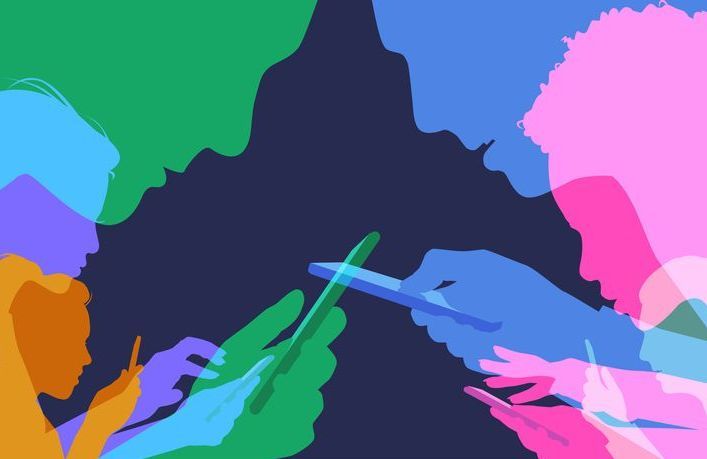And you, how was your Dry January ? And your resolution to go less often on Instagram, to watch fewer series? Today, almost everyone feels “addicted” to something. One by one, people confide in their addiction, from Prince Harry to Camille Lellouche, from Bradley Cooper to Carla Bruni (who said she had consumed “30 to 40 Cokes a day” during a period). Likewise, confessional books and graphic novels by former addicts to food, alcohol and drugs are on the increase. The lockdown went through there. In April 2020, an Odoxa* study showed that 5.5 million French people had increased their alcohol consumption. 22% took more sleeping pills, 27% smoked more and 74% were more involved in online gambling… But it’s in the area of screens that everyone says they are really addicted. In 2018, two out of three French people admitted to being “dependent” on their connected tools**. And, according to the latest Odoxa 2022 study, 28% of our fellow citizens present “risks of cyberaddiction”, with 15% binge-watching series, and 14% making excessive use of their smartphone (an adult spends an average of four hours a day on his phone). Have we all really become addicts?
An addictive environment
“We are witnessing a multiplication of addictive behaviors, notes Michael Stora, psychoanalyst specializing in digital worlds. It’s different: in the majority of cases, fortunately, these are not addictions in the medical sense. » Same analysis by Delphine Moisan, addictologist psychiatrist at the Beaujon hospital, in Clichy: « The term “addict” is used a little abusively. It is better to talk about excessive behavior. An addict is someone who can no longer control their consumption, with a “craving”, an irrepressible need to consume, negative consequences on their social, professional and family life. You can consume a thing in large quantities without becoming addicted. If you spend your weekends binge-watching TV shows, it might not be great for your balance, but if it doesn’t affect your ability to work, to have a social life, it is not too serious. “Today, only two substance-free addictions, video games and games of chance and money, are officially recognized as addictive,” continues Delphine Moisan. But other excessive uses can lead to addictions, if they become compulsive, invasive and cause negative effects in our daily lives. Why do we use the word ‘addict’ so much? “There has been a demonization of this term, explains Laurent Karila, addictologist psychiatrist at the Paul-Brousse hospital, in Villejuif. Previously, the term was taboo, stigmatizing. Today, addiction is considered a pathology, which has made it more acceptable. There isn’t a Netflix series without a character who is a member of Alcoholics Anonymous or Narcotics Anonymous. We see this with the proliferation of discussion groups: Overeaters Anonymous, Emotional and Sexual Addicts Anonymous, etc. And in his very popular podcast, “Addiktion”, Laurent Karila receives personalities who are happy to talk about their addiction. Unthinkable a few years ago.
Read also >> Covid-19: addictions, malaise… A salty addition
It is also that we live in a highly addictogenic environment. Consumer society, anxiety-provoking atmosphere (crisis, Covid, war), technological tools… greatly contribute to this. Finally, our very psyche has evolved: “In Freud’s time, people felt crushed under the weight of a stifling morality,” remarks Michael Stora. Today, people suffer from diseases of narcissism. They are anxious because they don’t think they are beautiful, efficient or recognized enough. And this anxiety is conducive to addictions. “In short, if we are not all addicts, we are all threatened to become one… What to want to take again a Spritz.
* “Containment, teleworking and addictive behavior: the French point of view”, produced for GAE Conseil in April 2020.
** April Foundation, hyperconnection barometer. SOS Addictions, tel. : 06 01 43 31 94.
We would like to give thanks to the writer of this post for this outstanding material
Sugar, yoga, work, social networks: why are we all addicted? – She
Explore our social media accounts and also other pages related to themhttps://nimblespirit.com/related-pages/

